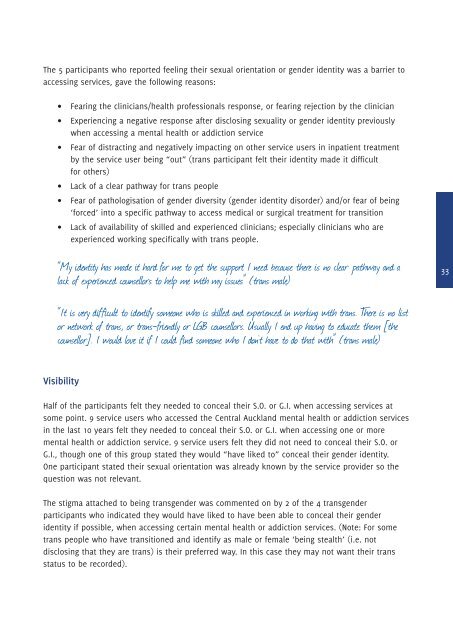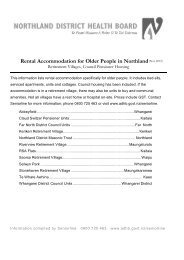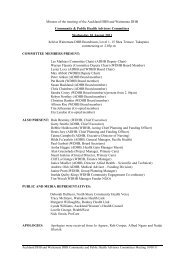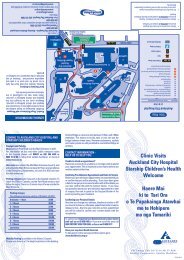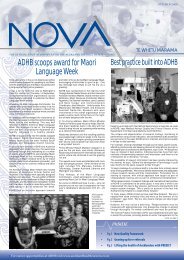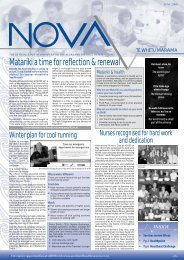Lets talk about sex.... - Auckland District Health Board
Lets talk about sex.... - Auckland District Health Board
Lets talk about sex.... - Auckland District Health Board
You also want an ePaper? Increase the reach of your titles
YUMPU automatically turns print PDFs into web optimized ePapers that Google loves.
The 5 participants who reported feeling their <strong>sex</strong>ual orientation or gender identity was a barrier to<br />
accessing services, gave the following reasons:<br />
• Fearing the clinicians/health professionals response, or fearing rejection by the clinician<br />
• Experiencing a negative response after disclosing <strong>sex</strong>uality or gender identity previously<br />
when accessing a mental health or addiction service<br />
• Fear of distracting and negatively impacting on other service users in inpatient treatment<br />
by the service user being “out” (trans participant felt their identity made it difficult<br />
for others)<br />
• Lack of a clear pathway for trans people<br />
• Fear of pathologisation of gender diversity (gender identity disorder) and/or fear of being<br />
‘forced’ into a specific pathway to access medical or surgical treatment for transition<br />
• Lack of availability of skilled and experienced clinicians; especially clinicians who are<br />
experienced working specifically with trans people.<br />
“My identity has made it hard for me to get the support I need because there is no clear pathway and a<br />
lack of experienced counsellors to help me with my issues” (trans male)<br />
“It is very difficult to identify someone who is skilled and experienced in working with trans. There is no list<br />
or network of trans, or trans-friendly or LGB counsellors. Usually I end up having to educate them [the<br />
counsellor]. I would love it if I could find someone who I don’t have to do that with” (trans male)<br />
Visibility<br />
Half of the participants felt they needed to conceal their S.O. or G.I. when accessing services at<br />
some point. 9 service users who accessed the Central <strong>Auckland</strong> mental health or addiction services<br />
in the last 10 years felt they needed to conceal their S.O. or G.I. when accessing one or more<br />
mental health or addiction service. 9 service users felt they did not need to conceal their S.O. or<br />
G.I., though one of this group stated they would “have liked to” conceal their gender identity.<br />
One participant stated their <strong>sex</strong>ual orientation was already known by the service provider so the<br />
question was not relevant.<br />
The stigma attached to being transgender was commented on by 2 of the 4 transgender<br />
participants who indicated they would have liked to have been able to conceal their gender<br />
identity if possible, when accessing certain mental health or addiction services. (Note: For some<br />
trans people who have transitioned and identify as male or female ‘being stealth’ (i.e. not<br />
disclosing that they are trans) is their preferred way. In this case they may not want their trans<br />
status to be recorded).<br />
33


